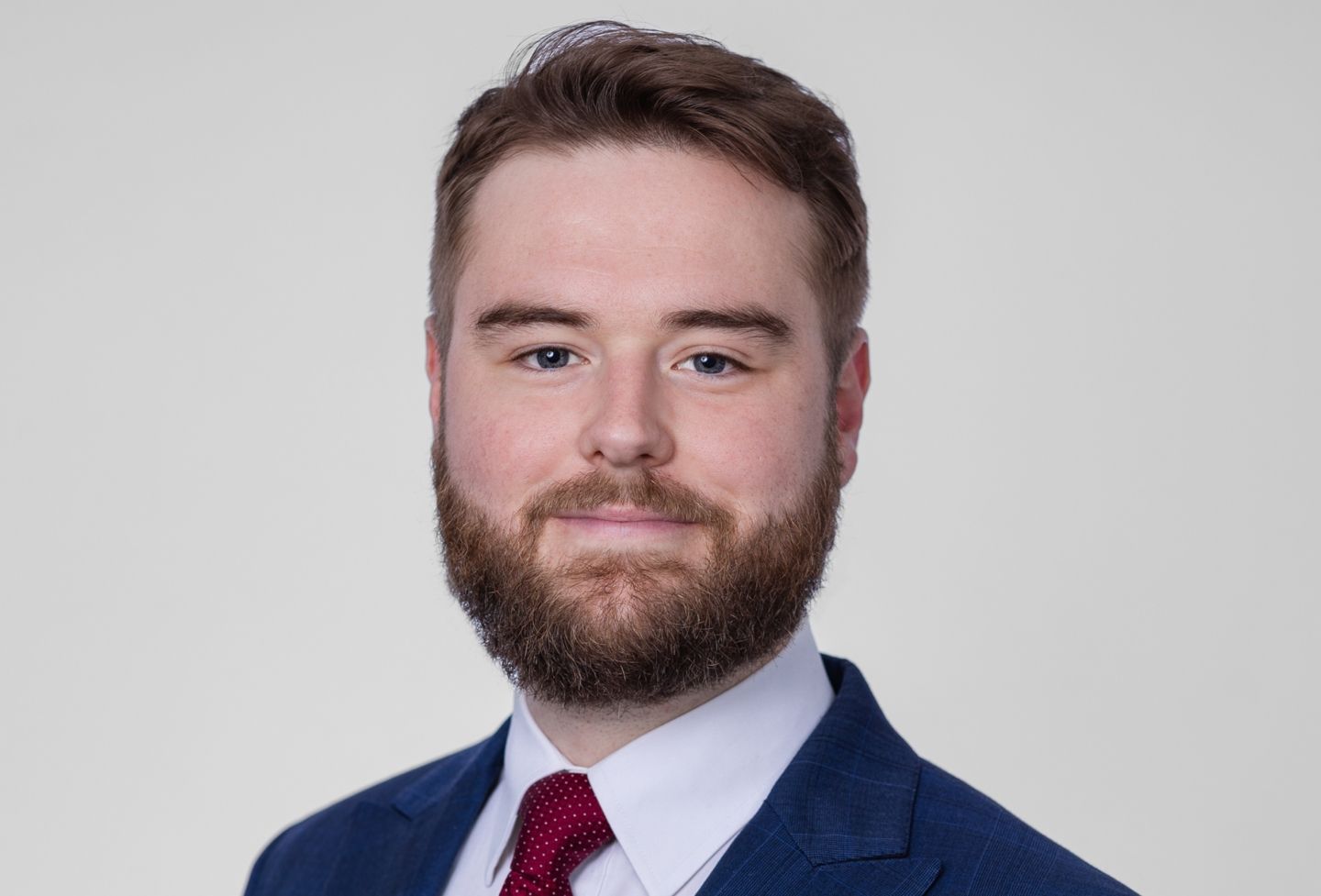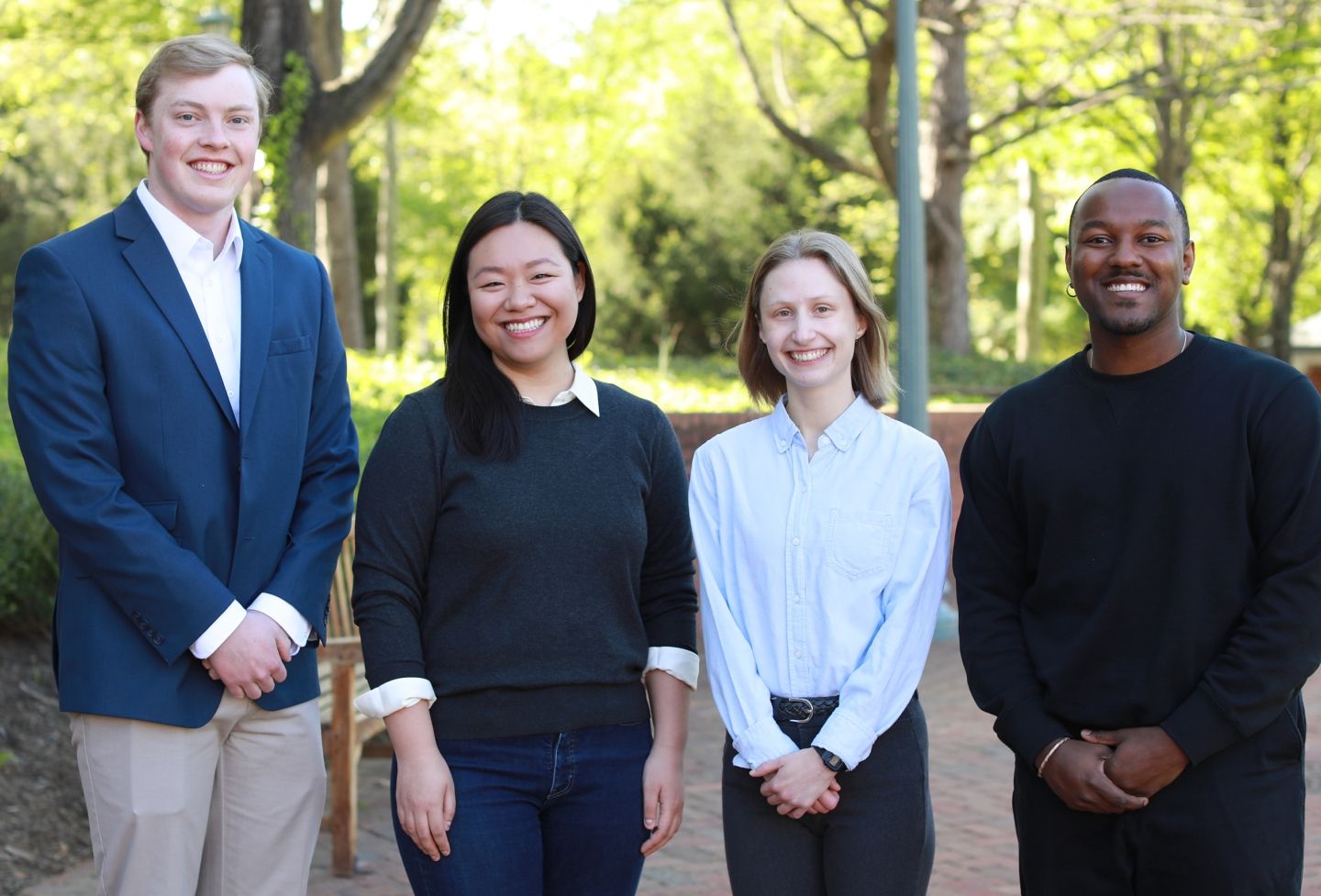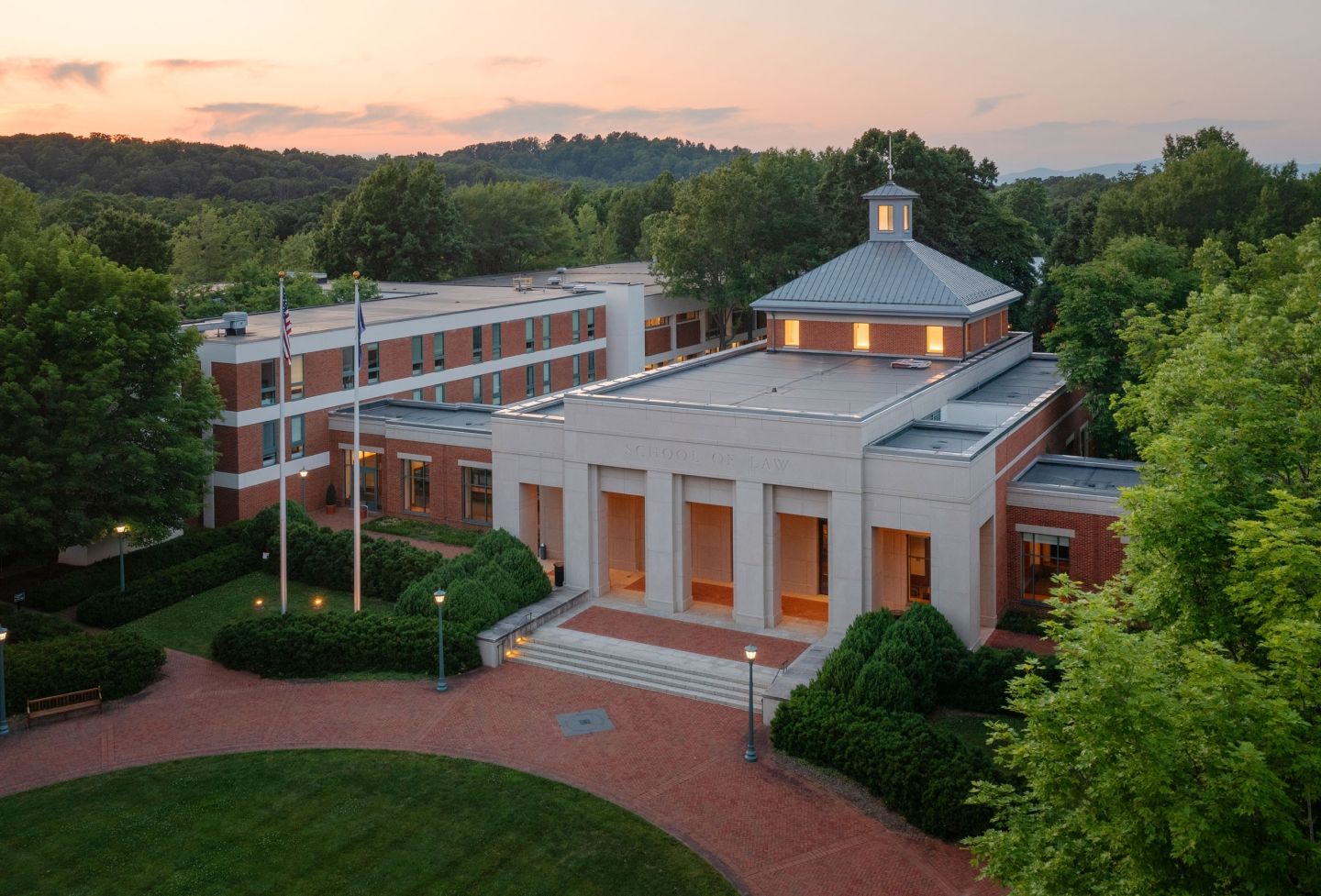Evan Carcerano, a 2024 graduate of the University of Virginia School of Law, is this year’s recipient of the school’s Pro Bono Award, tallying 501 hours of service over the past three years.
The Pro Bono Award recognizes the graduate who best demonstrates an “extraordinary commitment to service” and “the values of pro bono through delivery of critical legal services to underserved communities.”
While at UVA Law, the El Paso, Texas, native won the Claire Corcoran Award, was a Legal Writing Fellow and Program in Law and Public Service Fellow, and served as auction manager and Shaping Justice conference co-chair for the Public Interest Law Association. During his summers and in his spare time, Carcerano worked for the U.S. Department of Justice’s Civil Rights Division, the Central Virginia Legal Aid Society in Charlottesville and the Public Law Center in Santa Ana, California. He earned a bachelor’s degree in political science from the University of Texas at El Paso.
Carcerano recently talked about what he learned from pro bono work, his most rewarding experience and his advice for law school students.
Why were you interested in volunteering and what kinds of work led you to contribute so many hours?
I came to law school committed to pursuing a career in public service. After spending the first semester of 1L trying to figure out how to be a law student, I was eager to dive into public service extracurricular activities offered by the Law School. Working with the Pro Bono Program was a natural fit and allowed me to explore what types of public service work I enjoyed. Before law school, I had an idea that I wanted to work in the anti-poverty space and completing pro bono projects with multiple legal aid organizations confirmed that this was the career path I wanted to pursue. With each pro bono project, I felt more confident in my legal abilities, and volunteering made real the doctrinal concepts taught at the Law School. Once I knew I wanted to serve as a legal aid attorney, I was motivated to cultivate the skills that would help me after graduation, such as client-based skills, legal drafting and negotiating with opposing parties.
What’s been the most rewarding part of doing pro bono work?
The ability to help clients who could otherwise not afford an attorney. Even if my role was to interview the client and provide an initial assessment of their case, I felt that my efforts allowed my supervisors to have extra capacity to help with their active cases.
Tell us more about a particular project that taught you a great deal.
I will always remember one case during my winter externship with the Legal Aid Justice Center earlier this year. I was reviewing a pending eviction case and our client had the law on their side — at least with respect to the pending eviction. The problem was that, even if the pending eviction against our client was initially defective, the client’s landlord would eventually follow the proper procedures. Our client unfortunately did not have a lot of outside support and would struggle to secure housing if they were evicted. Having to provide legal advice to a client with dire circumstances looming was a difficult but, unfortunately, all too common aspect of legal aid work. That stuck with me because it highlighted that while the law is a powerful tool, there still may be times where you have a difficult conversation with a client because they are asking for help in urgent circumstances.
What advice do you have for students interested in pro bono?
Every student should do one pro bono project while they are a student at UVA Law. The pro bono office is incredibly helpful in providing a vast array of work for students to try. Once you have a project, approach it with enthusiasm for the work ahead, curiosity for how the law works in practice and an openness with all the people involved — supervisors, clients and opposing parties. Use the incredible position you are in to help those who may need a bright legal mind to evaluate their situation.
What’s next for you?
I will spend the summer studying for the Virginia bar exam. After that, I will begin working as a staff attorney at the Legal Aid Society of Eastern Virginia in their Norfolk office. My docket will consist of a variety of matters — housing, consumer, family and public benefits. I’m hoping to cultivate ample litigation experience before trying to specialize in housing and consumer protection law.
Founded in 1819, the University of Virginia School of Law is the second-oldest continuously operating law school in the nation. Consistently ranked among the top law schools, Virginia is a world-renowned training ground for distinguished lawyers and public servants, instilling in them a commitment to leadership, integrity and community service.


